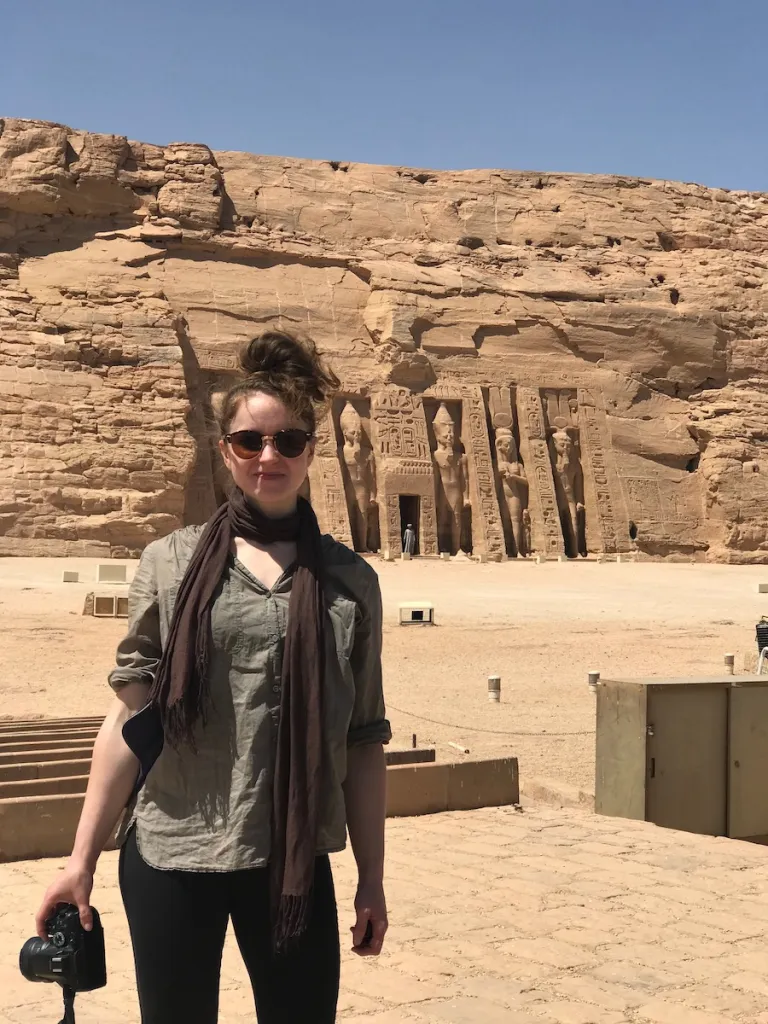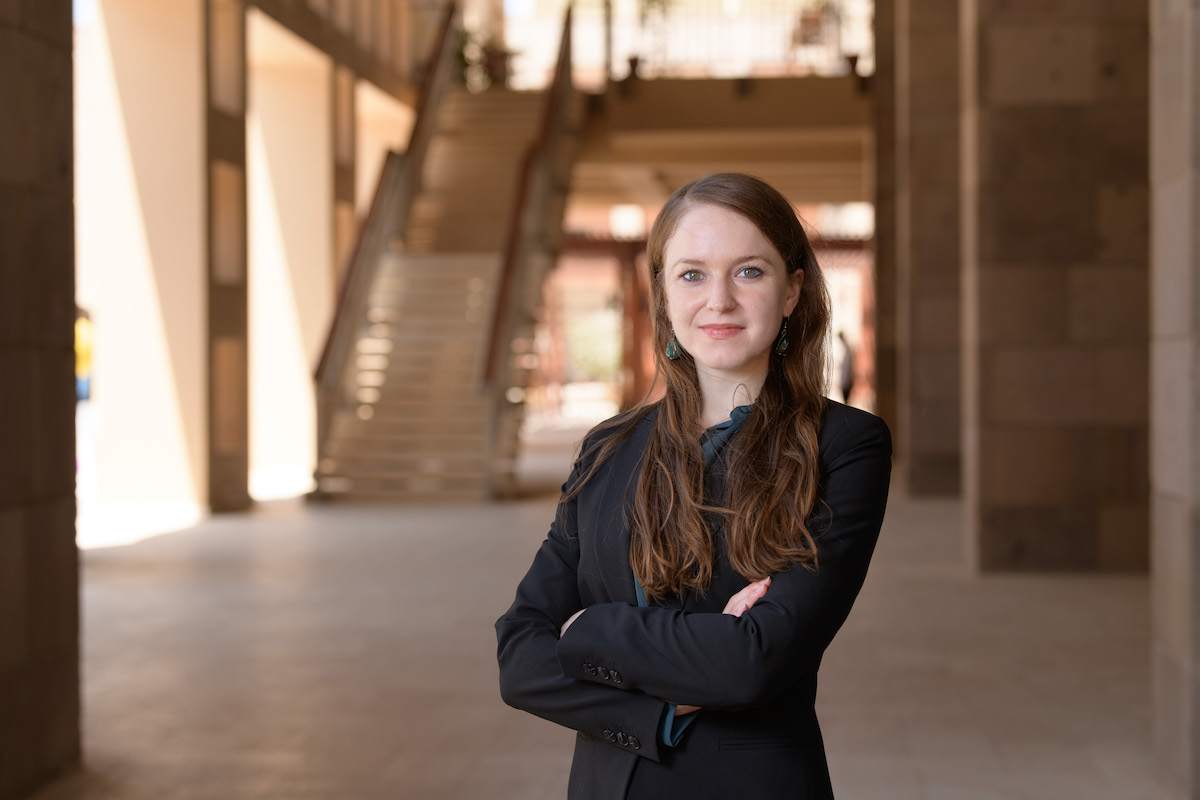By Katie Marie
Sarah Smierciak (SAB '09), assistant professor of political science at AUC, has long been fascinated by the ways in which local elites and their Western partners have served to exacerbate poverty and inequality in the region.
Her first book, Cronyism and Elite Capture in Egypt, was published in 2021. The monograph examines how relationships between Western-led development partners and local elites in Egypt have caused economic gains from reforms to favor elites over ordinary people and hinder long-term development.
Unpacking this idea further, Smierciak explained, "I think there are pretty clear remnants of colonial attitudes and exploitative tendencies on the part of many -- not all -- Western partners working in the Global South, whether in development, business or economic policymaking. There's a clear convergence of interests between international and local elites, and this often not only disregards the well-being of the majority of the population, but actively harms them." She continued: "Part of the problem is this crude assumption that as long as some of the beneficiaries of a development program or reform are Egyptian, the programs or policies are serving the country as a whole. But if you look at it through a class lens, it becomes apparent that sometimes these programs are not only entrenching inequalities but also helping to transfer resources away from those most in need to those who aren't."
Before starting at AUC, Smierciak spent a year as a research fellow at Harvard University's Middle East Initiative, which allowed her the time and resources to delve deeper into her current research on authoritarian regime financing. "I'm looking into how regime networks fund their megaprojects during economic crises, including the financial tools they use and how financial institutions help move resources from the public to the regimes," she explained.
In her scholarship and commentary, Smierciak has consistently advocated for international partners to reflect on the ways that elite capture can corrupt reform efforts and build mitigation strategies into program design.
She has also called for a rethink of the traditional neoliberal agenda of international donors and financial institutions, arguing that prioritizing human development and the building of robust social safety nets in the economic reform process can drive more equitable and sustainable development.
Research and Real Life
How does Smiericak, who is from Chicago, find herself building a career exploring the lives and cultures of people living halfway across the globe?
"Early in my bachelor's, I took a Modern Middle East History course just out of curiosity and fell in love with history in general and the region in particular," recalled Smierciak. "Part of why I found it so fascinating was because until then, my entire education had been so Western-centric. I really had never been exposed to the histories of non-Western parts of the world and things like the consequences of colonialism and its legacies."
After that class, Smierciak quickly enrolled in Arabic and was hooked. "The next summer, I did a language immersion program in Cairo and a semester at AUC, and I've had at least one foot in Egypt ever since."
Smierciak's desire to understand and share the stories of the region led her to study Arabic at Damascus University in Syria in 2010. She then pursued a master's in international development and a PhD in Middle East studies from the University of Oxford, where she studied as a Rhodes Scholar.
While today much of her academic research focuses on international political and economic cooperation, she is also deeply interested in the lived experiences of the ordinary people affected by these forces.
Smierciak explores these subjects through participatory media-making. Her personal website is decorated with snapshots capturing celebration, protest and daily life across the MENA region.

"I've always found photography and film so powerful. They can capture moments or emotions in a visceral way that's not always possible in writing -- and certainly not in academic writing," Smierciak reflected. "In academic research, or research and analysis in general, it's easy to become estranged from the very human elements of issues like poverty or war. I think photography and film can really recenter human beings, and even our own humanity."
Smierciak is currently producing a documentary that spans a period of more than a decade and tells the story of Manal, a young woman from Imbaba, as she navigates society's expectations about marriage and sexuality.
"This piece is a kind of coming-of-age story that's both very Cairo-specific and also universal," Smierciak said. "The film follows her around the country, but a good part of it takes place in the home of Manal's mother, who is quite a character, and revolves around the relationship between the two."
Exploration to Expertise
Building on her deep understanding of the region and its complexities, Smierciak recently found herself sharing her passion for Egypt through yet another unique medium: a guide to Om El Donya published with Moon Travel Guides.
"This was a side gig that became a much bigger commitment than I had imagined," she laughed. "There's so much work that goes into a travel guide that you don't really think about, like writing the history section in the back material -- and Egypt has a very long history. Then there was all of the photography and writing about not just the different cities and sections of the country, but the individual entries for each of the hundreds of restaurants, cafes, hotels and sites."
Her favorite part of the project was the opportunity to connect many of the local guides and small businesses she discovered throughout her own exploration to the international tourism industry.
"It was a challenge but a really fun one," she smiled. "It also helped that I really love Egypt and I'd been exploring the country for more than a decade when the book was commissioned, so I had a lot to share."


